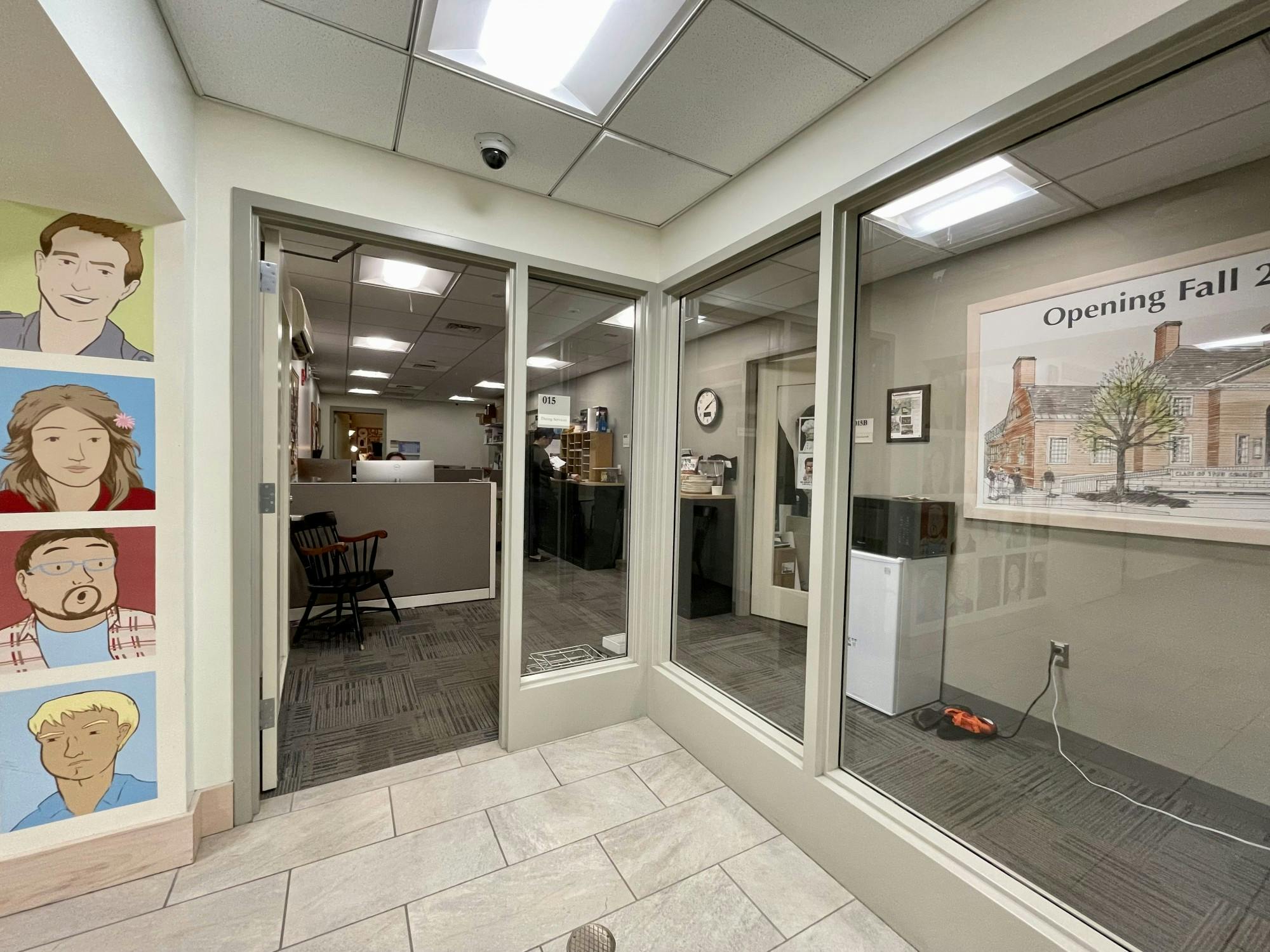Dartmouth Dining Services has been in the news a lot lately: Dartmouth Student Government and Dartmouth Dining recently created a dining advisory council, meal swipes are once again being accepted at snack bars and a strike by the Student Worker Collective at Dartmouth was avoided after they reached a tentative agreement with the College for a $21 per hour minimum wage.
To make sense of some of this, I decided to speak with representatives from both Dartmouth Dining Services and Student Government about our most pressing dining issues.
Pricing
Food and meal plan prices are one aspect of dining that students often question, especially given the price increases and fluctuations this term.
According to Dartmouth Dining director Jon Plodzik, the price increases occurred because “our vendor has experienced an overall 11% increase this year in food cost… it’s passed onto us.”
Plodzik also pointed out that there are other expenses — like building mortgages and parking lot plowing — that students may not realize Dartmouth Dining has to pay.
Unfortunately for students, the College’s other revenue streams do not help pay for these expenses, so the hidden costs are reflected in the price of student meal plans. Unlike most departments at Dartmouth, which receive funding from tuition payments, Dartmouth Dining receives little funding from the College itself. This lack of financial support forces increases in meal plan prices.
Another reason behind the high cost of meal plans is the food distribution network.
“When we buy an Oreo cookie, it’s gone through three vendors before we purchase it. Each one of those vendors has marked it up,” Plodzik explained.
One of the more controversial prices on campus is the $5.99 Courtyard Cafe cup of grapes — especially considering that Co-Op Food Store sells what appears to be twice as many grapes for $3.49. However, after factoring in costs that the Co-Op does not have, Plodzik said that the price makes sense.
“They’re actually cutting everything by hand at the Courtyard Cafe,” Plodzik said. “We’re never going to be competitive… in the supermarket world. We’re highly competitive in the restaurant world, because we’re in that same business.”
When it comes to potential profits, Plodzik said that Dartmouth Dining does not make money — in fact, he noted that for the past three years, it has run at a deficit.
“We don’t want this to be an expensive program,” Plodzik said. “We want this to be as competitive and priced right as best we can. And we will always try to be looking at ways that we can save money and use your money wiser so that we can make the program better.”
Regardless of seemingly high prices, it was clear that Plodzik’s main focus was on making sure students were fed.
“No one should ever ever go hungry while I’m here,” Plodzik said. “And I mean that quite sincerely. If someone has a problem that they have used all their meals and used all their [DBA], they better call me... I’ll take money out of my own wallet to make sure that people don’t [go hungry].”
Stealing
One of the misconceptions that Dartmouth Dining wants to clarify is that there is not a $100 stealing fee built into students’ meal plans.
When Plodzik heard about this rumor, he reached out to Dartmouth’s billing department to see if there was any truth to it.
“Is there [anything] on the tuition bill that would look like a $100 fee from dining?” Plodzik said he asked, adding that he was told a definitive “no.”
“[Stealing is] a complete loss,” Plodzik said. “We don’t factor in how much things disappear and say ‘I better make the meal plan this price in order to cover that cost.’ What has happened over the last year is that we’ve seen a lot more items in our retail venues disappearing.”
When I asked him why he thought stealing was happening more often, he said that he was not entirely sure.
“[Stealing] affects the quality of our program and what we can with money in our program,” Plodzik explained. “And so it’s not like you taking a Core Power chocolate milk, which is one of our number one stolen items, doesn’t have a consequence. It does, because I lost the revenue… That expense hits our program.”
Dartmouth Dining’s Relationship with the College
Despite what many students believe, Dartmouth Dining is part of the College and not a separate, outside company.
“We’re Darmouth … Our loyalty goes to one place,” Dartmouth Dining senior manager for operational excellence Deborah Scanlon said. “I’m looking at the ice sculptures, and I’m going to the bonfire. And [Plodzik] is going to the games… we take an interest in the students that are here.”
Plodzik added that since nearly 90% of Dartmouth Dining’s revenue comes from meal plan sales, he wants Dartmouth Dining to be a “good steward of [students’] money.”
“In a way, by buying a meal plan, you’ve entrusted that I will provide you enough services and enough food to keep you happy during the term,” he said.
The Dining Advisory Council
Recently, Dartmouth Student Government and Dartmouth Dining created a dining advisory council, which is a collaborative effort between representatives from the student body and Dartmouth Dining.
According to DSG president David Millman ’23, one of the council’s goals is to establish a “better way to relay student concerns and work on solutions to student problems.”
Millman said that the council is focusing on issues from accessibility to nutrition and diet.
Plodzik explained that conversations initially started between Dartmouth Dining and the student government to address the problem of stealing.
“Our conversations started related to the students who weren’t paying for items in some of our retails,” Plodzik said. “That led to a lot of misconceptions that a number of the students within [DSG], even, had related to dining.”
According to Plodzik, talks between Dartmouth Dining and DSG have occurred before.
“We used to work quite a bit with students prior to COVID hitting, and then everything kind of died. This is us returning back to what really was the norm,” he said.
The Music at Foco
On a lighthearted note, I felt that I could not ask Plodzik and Scanlon so many questions without also inquiring about who is behind the eclectic aux at Foco.
“It’s a satellite radio that we put in here,” Plodzik explained. “They program the [songs] and it has a mode where it starts in the ’80s in the morning… and if you’re here for late night, you’ll feel like you got an urban beat almost… it gets more intense as the day goes along.”
My biggest takeaway after conducting these interviews is that there are two sides to every story. While students find food prices high, Dartmouth Dining is currently running at a loss. Because students are stealing more than ever, the lost revenue may be affecting Dartmouth Dining’s ability to invest in their program and provide further benefits to students. At the same time, they are part of the College and seem to open to listening to student concerns.
Considering all of the moving parts of Dartmouth Dining, sometimes it’s helpful to hear out every perspective — even those you may disagree with.
Correction appended (Feb. 23, 9:50 a.m.): A previous version of this article left out Deborah Scanlon's title, Dartmouth Dining senior manager for operational excellence. The article has been updated.




